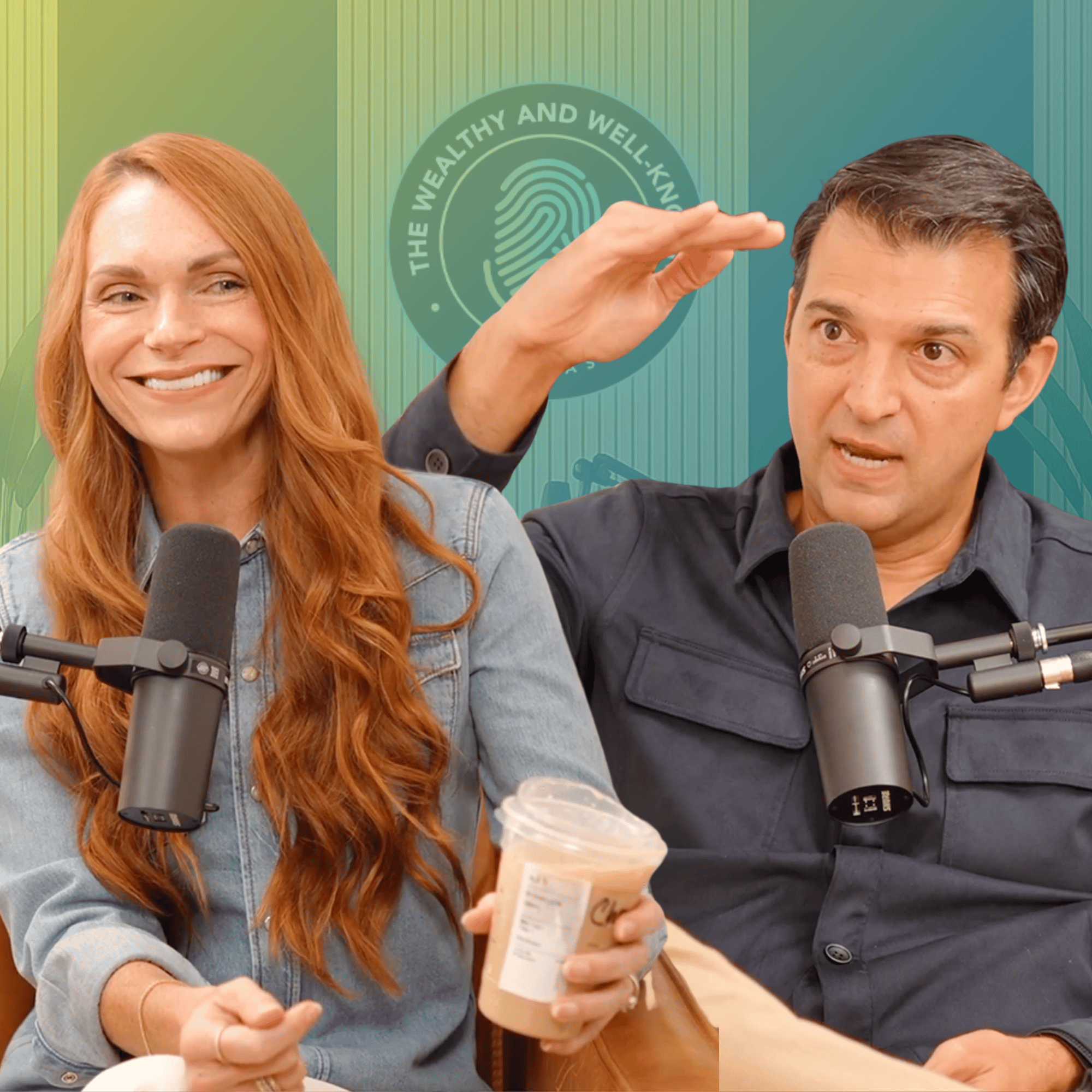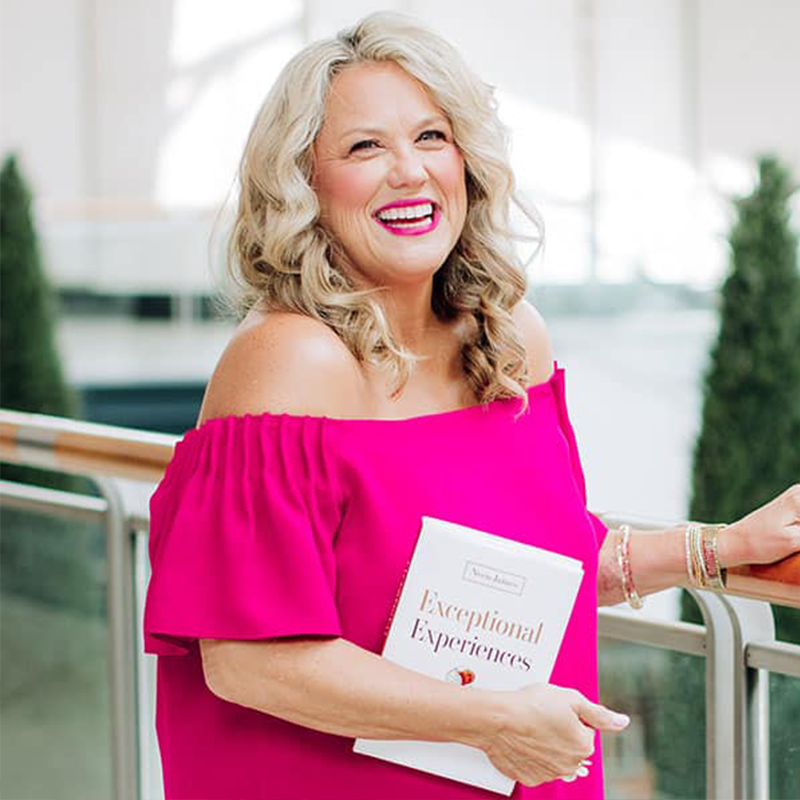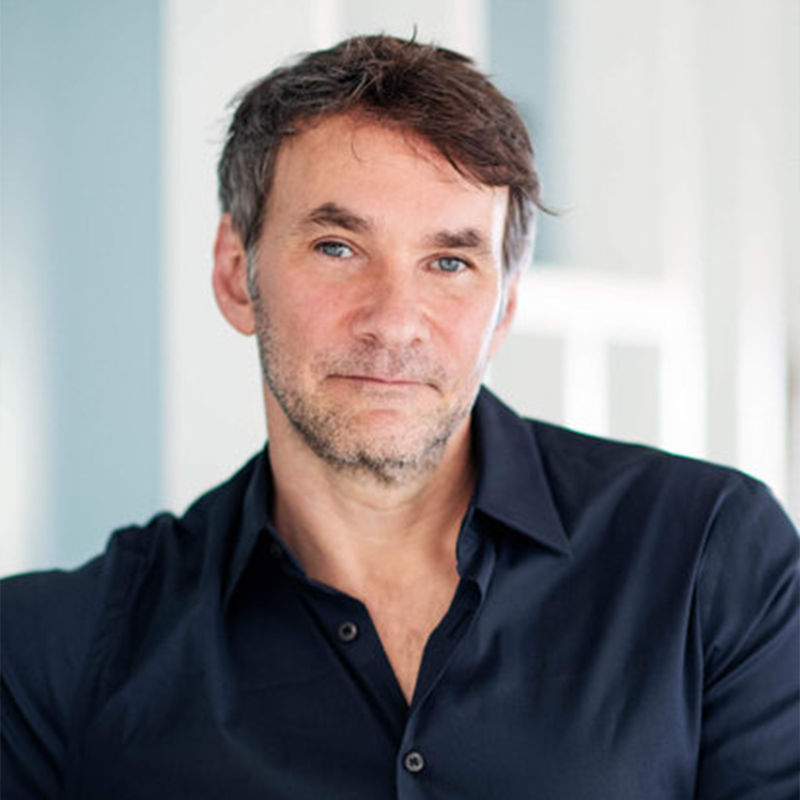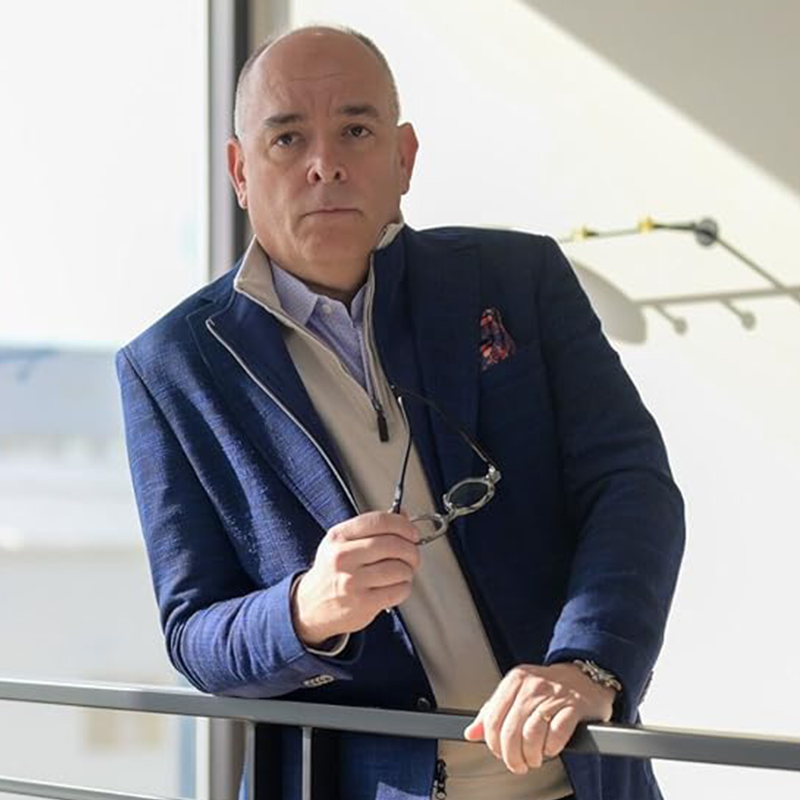RV (00:07):
Hey brand builder, Rory Vaden here. Thank you so much for taking the time to check out this interview as always, it’s our honor to provide it to you for free and wanted to let you know there’s no big sales pitch or anything coming at the end. However, if you are someone who is looking to build and monetize your personal brand, we would love to talk to you and get to know you a little bit and hear about some of your dreams and visions and share with you a little bit about what we’re up to see if we might be a fit. So if you’re interested in a free strategy call with someone from our team, we would love to hear from you. You can do that at brand builders, group.com/pod call brand builders, group.com/pod call. We hope to talk to you soon.
RV (00:54):
Well, Dorie Clark is someone that I have known about for years. We’ve kind of been friends and acquaintances and hung out here and there. And I just think she’s delightful and wonderful and extremely intelligent. And so she has a new book that is coming out called the long game how to be a longterm thinker in a short term world. It was a wall street journal bestseller. It came out a few weeks ago. She had a fantastic launch. We’re in a little author mastermind group together. And so most recently we, we reconnected around that, but she also teaches at duke university. She’s a contributor, a long-time contributor to Harvard business review. She’s been featured in all of this major media and was also awarded one of the top 50 business thinkers in the world by thinkers 50, which is an extremely prestigious award and group to be a part of. And anyways, she’s cool. And she’s here Dory. Good to see you,
DC (01:53):
Rory. It’s so terrific to get to spend time with you. Thank you.
RV (01:56):
Yeah. So your first book reinventing, you was kind of like more about personal branding specific. That’s like very much in our, you know, the world that we live in these days. Tell us about the long game and you know, how would you describe this in a, in a phrase and then you know, let’s just kind of, I want to dive in around there.
DC (02:21):
Well, the, the phrase that I would use to describe the long game is it is applying the lens of strategic thinking to your own life and your own career. And the way I actually see it tying in with my previous work and with personal brand in general, is that in many ways, the inspiration for the book came from the coaching clients that I worked with in the people, in my orbit. And we’d be having a session, they’d be updating me, they’d say, okay, I did this, I did this. And at a certain point in almost every session, there’d be this pause and then say, so what now, what next? And they’d be looking for the next thing. They, what they kind of wanted me to tell them was like, oh, go all in on tech talk. That’s the thing do that big or what, you know, whatever the thing might be.
DC (03:10):
And I often felt really like the bad guy when I was talking with him because so often my advice was the thing to do is like, keep doing the thing you’re already doing. And I realized that when it comes to professionals that are passionate about getting their ideas out there, getting their message heard on one hand, we know that there is not some sort of magic bullet that will do it for us. And on the other hand simultaneously, we still kind of want one. And so, yeah, why not? So I wanted to write a book to really hopefully be a bit of a framework for people about the hard part of patients, because for a long time, if you are doing the work, if you’re really pushing to get your ideas out there to get better known and to build your brand, it’s a process that usually takes awhile and it can feel at various points in the journey as you know, really demoralizing, it feels like, oh, is this working? Oh, why is it taking so long? But that is what we have to muscle through to get to the other side. And I really wanted to encourage people to be able to do that so that good people didn’t give up too soon.
RV (04:22):
How long, how long does it take? Right. So if you know, I think about Malcolm, Malcolm Gladwell, you know, popularizing the 10,000 hour rule, right. Or a lot of times what we, we almost describe brand builders group is going, like, we often position ourselves as telling people, Hey, we’re not the people that are gonna like say, you know, you’re going to make six figures in the next 30 days. We’re the people saying we’re going to take something that would normally take 20 years and get you there. And six, like, but how long? And I know that’s a, that’s a kind of a broad question because the answer is it probably, it depends, but how would you answer that question? Like how long do I have to work at doing the right things? Even though I’m not seeing immediate results right away. And I’m like slogging away going okay. If I, if I do things the right way and I add value to the world and I keep trucking along here, like, okay, what when, like when do we actually start to turn the corner and see the, see some of the like big traction?
DC (05:28):
Yeah. Yeah. I love, I love the question. Worry. Cause you’re exactly right. Like everybody knows that it’s not overnight. We’re like, yeah, yeah, we get it. Okay. Not overnight, but nobody tells you what not overnight means. Like, is it like two nights?
RV (05:43):
I’m good for two weeks. So yeah. I, I don’t, I’m not overnight success. No problem. But two weeks later I’ve been doing this for two weeks Dory, like, and I don’t have a million downloads. Like why don’t I have a million downloads? It’s been 14 days.
DC (05:57):
That’s right. Well, I do, I do have an answer because on one hand, of course, you know, as you say, the caveat is yes. You know, conditions may vary for people, but also people want to know. And one of the things that I have had the benefit of over time is not only going through this process in my own journey, but now working with tons of people, I have this online course in community that I run it’s 600 plus people have been through. So there’s a real sense of sort of a cross section with longitudinal perspective. So I’ve gotten to see a lot of times what it looks like and where people get hung up up and how long things take. And so I’m curious to hear your answer, but my answer when people ask me this question is that typically, if you are, if you were putting in a you know, a strong effort, I say that it usually takes between two and three years to show almost any results. Like let’s be clear. And I then say, it will take about five years to show demonstrable results. Now the good news is that by the time you get to around five years, you have actually put in enough work, you’ve created a significant competitive moat between you and other people. That is a real headstart that differentiates you from the competition. But you know, most people are not willing to do it because you know, they’re at 18 months or whatever, and they’re like, this sucks and we gotta keep pushing. So how do you answer that?
RV (07:31):
Well, I mean the, the way that I would answer is, is more of a, more of the concept of it takes as long as it takes. Like, if you’re doing something that you really care about, if it’s really about impact, you just got to commit to say, I’m going to do this for the rest of my life. And sooner or later it’s going to work. Like I think about you and I also speak a lot. And I think that was a very first time we met was maybe at social media marketing world at Jay Baer is one of my best friends. I know you guys, I’m pretty sure he’s who introduced us. And
DC (08:04):
It was NSA actually
RV (08:06):
Through Jess. It was the NSA. Anyways. So as the speaker world, I tell this story sometimes, cause I, I remember going to NSA and I was 20 something years old. And the first time I was at NSA they, they have this hall of fame award, right. That they give out to people and it was amazing. And, and, and there was a speaker that, that I knew and had heard before that he was honored by being in getting inducted. And I think a lot of people would go, oh, well, that’s amazing. Like it’s a far off goal. The thought I had in my head literally at like 22 was like, oh yeah, I’m going to be inducted into the hall of fame someday. But I didn’t, I didn’t know when, and I didn’t be like, I’m going to do it in two years or five years or, or, or 10 years.
RV (08:54):
But I literally thought I’m 20 years old. I’m going to do this the rest of my life. So even if I suck, like it’s 50 years from now, even if I suck, like after 50 years, I’m probably going to get this award at some point. So I love it. It’s like, if you’re really doing the thing you love, if you’re really doing the thing you got, you’re committing your life to, and you go, I’m going to play the long game because this is the thing that matters to me. It’s not vanity or money. It’s like, it’s like your calling then. You know, it ended up, it ended up taking me like 17, I guess, 16 years. So I was, I got inducted in 2018. So it took a minute, but it did happen. But I, I like your five-year answer. I mean, in, in terms of a practical answer, I, I like your five-year answer because like, you’re not going to change your life completely. Typically in a year or two. Now we had a, we’ve had a client, we helped to get a viral Ted talk. She got 3 million views in a year and it has made a pretty substantial change, but it’s still at this point, you know, now we’re like two or three years in, it’s still mostly a trajectory change the fruits of that really. Aren’t, she’s going to start reaping here in the next 2, 3, 2, 3, 5 years. I think your five-year answer is a good one.
DC (10:21):
Yeah. Thank you. And I, and I appreciate what you said, Rory, because one of the ways, I mean, you know, always the question right, is okay. If you’re going to slog through something for two or three or five years, how can you keep yourself motivated when it feels so long? And when you’re not typically in the early stages getting much positive reinforcement,
RV (10:40):
How do you keep yourself motivated Dory for five years when you’re slogging through this crap Fest of just getting punched in the face. And it’s like, I’m putting 70 hours in. I got three views on my YouTube channel. I got eight downloads of my podcast. I’m speaking for free. Or, you know, I’m an entrepreneur and I’m working 80 hours a week. And I still feel like I’m doing everything. How do you keep yourself motivated Dorie Clark?
DC (11:04):
Well, I think one, one of the ways that we can answer this is to, to choose activities that we’re doing, that we can nonetheless derive a short-term payoff from even as we’re pursuing the longer goal. It’s, you know, we can think of it as winning, even if we lose meaning, you know, hopefully the long-term will pay off that’s, that’s the goal. That’s the thing we’re all after, but let’s pretend it doesn’t for some reason, how can we make sure that the time we spend is not time that we are wasting? And so just as one example, let’s say that somebody has decided, all right, I’m going to start a podcast. And the goal is that they want to establish themselves as a recognized expert in their field. And they, you know, maybe they want to have something that one day becomes a huge podcast and they could get advertising revenue and things like that.
DC (11:56):
That’s, longer-term, that’s harder, but in the short term, the value of a podcast or a blog or video series or whatever you choose choose your methodology is that you could be using that in the here and now to connect with other prominent people in your fields. You could be connecting with potential clients. You are using it as a lever for relationship building, which is something that presumably you want to be doing anyway. And so at the end of those five years, even if you don’t have, you know, iTunes, top 10 podcast or something, you have a heck of a lot better network. You have a lot more business prospects, more people know who you are and know what your name is. And that is something that is going to be valuable no matter what the long-term outcome is.
RV (12:44):
Yeah, I will. I mean, I love that you and I were catching up on our personal story of when we exited our last company and starting over. And it was like, all we had was our reputation. We didn’t have the followers, we didn’t have the client list. We didn’t have our email, we had nothing. But what we had was a bunch of people that we’d met, that we had helped here and there along the way with stuff. And that made a really, really big difference. And I love that winning, even if you lose idea, the other thing about this I want to see your thoughts about this, because I think it’s funny how let’s use YouTube. So my car we’ve been slogging through YouTube. That’s a good real life example. Like I think our new YouTube channel, I think we’ve been doing a video every week and we’re on like, I don’t know all coming up.
RV (13:32):
I think maybe on two years and our video, we’re still getting maybe like a couple hundred video views. And it’s like, we’ve been doing this for two years. We got a couple of hundred views. And I think what people often forget is you go, you look at, you know, XYZ, some other person, right. You know, grab whoever Tony Robbins and you go, Tony posted a video and they get million views. I got 200 views. And yet we forget that if you were standing in front of a room of 200 people that were live for most of us, that would get our heart rate pumping like even 50, you know, or a hundred. But we go, ah, you know, my, you know, my Instagram video got a hundred views and it’s like, if there were those a hundred people were standing in front of you, you’d be jacked. And I think we lose that perspective digitally. Sometimes
DC (14:25):
I think that’s a really right on observation. I mean, sometimes people who are not authors will ask me, are you doing a book tour? And the, you know, the first thing of course is like, well, hashtag COVID no, not really. I mean, it was hard enough to even get a place to have a launch party in New York because like a lot of the bookstores have stopped doing events. So are, you know, hopefully will get better and that we’ll get back to normal. But, but even regardless of that you know, publishers are very, very hesitant to pay people, you know, pay for people to do that now. And you can understand why, because if you were to travel all around, you know, the planes and the hotels and the trains, and you’re going to different cities, if you did a bookstore event and it had 50 people in it, or 75 people that would be a path to bookstore, it would be like, wow, this is so huge. This is so amazing. Meanwhile, if you stay at home, even like literally the worst podcast has 50 people that listened to it. And so thinking about just how we deploy and leverage our time digitally, it’s a, it’s a really big difference.
RV (15:39):
Yeah. I love that. I love that. So what are all the ways that we play the long game? Okay. So I know that that’s the premise, which I love, we’re totally aligned on that. I mean, I think you go, okay, choose activities that you can win. Even if you lose what are like the other places or prac practical kind of like expressions of which the long game plays out. I mean, we’ve kind of used the content marketing example here, right? Like YouTube being, or doing podcasts or something, where else in our business and our brand is this really, this concept matter.
DC (16:20):
Well, one area that I talk about in the long game, Rory is actually applying a concept that many of your listeners may be familiar with in a slightly different context to our own lives. And that is the concept of 20% time, which Google has really popularized. And the idea for people who are not familiar with it is that Google employees are encouraged to spend up to 20% of their time working on, you could call them speculative activities or experimental activities that are outside their typical job description. And, you know, a worthy caveat here is that even though technically, you know, oh yeah, you can do that. It’s actually a very small percentage of Google employees who do do that because the, there there’s always such a lure of the short term, you know, people are like, oh, how could I possibly do that? I have so many emails to answer.
DC (17:10):
You know, it’s always easier to just do the thing at hand to tend to the urgent, but there is real power. I think for all of us, whether you work inside a company, whether you are self-employed, whatever your circumstance is, number one, we have to realize nobody is going to hand us experimental time. We have to, we have to carve that out and protect it for ourselves. And number two, I think it is one of the most valuable things that we can do because, and, you know, if 20% sounds outrageous, fine, make it 5%, make it 10%, whatever you can do. But we all know, you know, if anybody, with the most rudimentary knowledge of investing principles has heard, it’s a good idea to diversify your portfolio. Don’t put all your bets on one, on one, you know, square, don’t put all your money in one stock.
DC (17:58):
Well, similarly we tend in our professional lives to do exactly that. And it’s great while it’s great. And then if the market changes, if there’s disruption, if there’s some kind of a, an alteration in circumstances, it can actually be devastating. And so making sure that we are actively carving out space to learn new things, meet new people, develop new skills and new interests is actually the kind of hedge in our life portfolio that we need to protect our downside and also give us an opportunity for potential upside in ways that we can’t quite imagine yet.
RV (18:36):
Hmm. Yeah. That’s, it’s interesting. There is that I think it’s in the year, I want to say the year 1969, Charles Hummel wrote that essay, the tyranny of the urgent and just constantly pulled to whatever is short term and right in front of our face, which doesn’t require as much of the, the creative thinking or even just like the, the freedom to kind of daydream a little bit. I wanted to ask you like, to the point of strategic planning, you described this to me when we were chatting as the long game is a little bit of like the strategic, the kind of strategic planning that companies would do, applying that to your own personal life. Can you talk about that a little more? And what, what does that mean? And actually like how, like what actions or what behaviors would we engage upon to do that kind of strategic planning for our own life?
DC (19:40):
Yeah, absolutely. Well, you know, it’s interesting because a lot of the folks that I work with, I mean, they’re, they’re smart, you know, educated professionals and it’s, it’s almost second nature in their day jobs to be doing strategic planning for their business, right? Oh, that’s what we do. We come up with the 10 year plan, the 20 year plan, the one year plan, the five-year plan and then you execute against it. We are very familiar with that, but what I have often seen is that the things that are intuitive to us in our business, we often fail to make the parallel and turn the mirror on ourselves to realize, oh, wait, I should probably be doing something similar for myself. And so at a really basic level, it’s, it’s asking ourselves questions like are the daily actions that I am taking lining up to put me in the direction of where I would actually like my life to go.
DC (20:37):
That’s one important question. Another one that I find useful is asking ourselves as often as we can, what are the things that I can do today that would make tomorrow easier or better and tomorrow, you know, could be literally tomorrow. I mean let’s, but, but it also can be this sort of endless tomorrow. I mean, if we take, if we take a sort of a clear example, like physical health, of course, if you’re 40, you, the 80 year old you is going to be grateful that you worked out and that you took care of yourself, that, you know, there, there’s no doubt that that is going to be a helpful thing for the longterm in the moment we know you’re busy in the moment, it’s hard. But if we literally bring it back, okay. You know, so yes, that’s a thing I can do that I’ll be grateful for in the long tomorrow, but in the short tomorrow, maybe it’s something as simple as laying out your gym clothes. So it’s the first thing you see on your dresser in the morning, so that you’re predisposed to go to the gym instead of mucking around in the morning and reading the paper and wasting time. And then suddenly you, you ran out of time and it, and you have to go to your work calls. So it’s, it’s just thinking through that alignment between today and where you want to go.
RV (21:55):
Yeah. I like that a lot. And I think one of the places that people seem to struggle is figuring out the long-term it’s like seeing the picture, but the older I’ve gotten, the more I’ve become convicted that the single like greatest difference probably between people who end up with an amazing life and those who end up with just like whatever is, they think long-term and most people don’t, they’re not good at thinking long-term, they’re actually, they’re not that great at figuring out, like, what do I want to be? Who do I, what do I want to do? Who do I want to be? Why do I want to have because I think it’s like, if you nail that, if you get, if you’re somehow clear on that, then it becomes more naturally obvious that it’s like, well, I’m doing a bunch of stuff. That’s taken me this other, this wrong direction and it’s not lined up.
RV (22:58):
Do you have any tips for people that are going like, gosh, I just, yeah. I don’t know. Like I think about you know, any small business owner and even any big business, a lot of big businesses just run off doing a hundred things that they’ve always been doing and nobody’s actually going, like, what do we want to be in in 10 years? So think applying that kind of strategic thinking to our personal life, do you have any hints or tips or ideas for like determining what your long game should be or clarifying what your vision or purpose is?
DC (23:30):
Yeah. I have a couple of thoughts, Rory. I mean the first one is I always like to ask my clients, who are you jealous of? And I like this question, because so often we think of jealousy as this terrible thing. Like, no, I’m not jealous of anyone jealous. He’s awful. I wouldn’t do that. But the truth is sometimes, you know, we read about people, we hear about people, they could be folks in your life. They could be people that, you know, you are just, well-known in your field and there’s a piece of you that it’s like, oh man, I wish I could do that. Or, oh, how do you get that? And that is actually, you know, you know, of course we don’t want to be riven by jealousy, but it’s actually, I think in many ways, a trail of breadcrumbs, because there’s something in there that you admire, there’s something in there that resonates with you.
DC (24:21):
And if we are thoughtful about asking the questions and saying, well, well, what is it that appeals is it that you want to live in the same place that he lives? Is it that you like the manner in which she’s working and you’d like to have a schedule like that? Is it that you would like to also write for a particular publication? Like, what is it that is sort of sticking with you where it’s like, oh yeah, that you can actually begin to explore that and create a sort of wishlist and reverse engineer it for yourself. So that’s, that’s one way I think we can begin to get at it. And you know, the other way, the other thing that I’ll just mention is I think we’re a lot of people get hung up sometimes is they feel like they have to choose quote unquote, the right goals.
DC (25:06):
They’re like, what if I chose the wrong goal? And I just like, I’m S I’m a fan of like lowering the bar. I’m like, okay, you chose the wrong goal. Like who cares? It’s okay. Change it. Like, that’s really okay. You know, the, the point is we monitor things enough. I mean, you don’t want to be working 20 years toward the wrong goal. And you know, suddenly you’re like, oh, I never bargained for this. But if you choose something that is a goal, you work toward it and you reach a certain point where you say, gosh, you know, this doesn’t seem right anymore. I didn’t realize it would be like this, or, oh, wow. There’s been a huge market change. And this is no longer a good idea. That’s the moment where you can pivot. And it is okay. The work is not wasted. You have been working towards something that is a relative of where you want to go. The question is now we can fine tune it a little bit. So I think if we hold the goals lightly, it, hopefully it takes the pressure off a little bit.
RV (26:00):
Yeah. I love that. The jealousy thing is, is interesting, right? Because it’s it is such as seen as such a negative, but then you go there, something in that that speaks to you, it calls, it calls to you almost in the way that like if you were going to build a house, you would drive down the street and you go, Ooh, I don’t like that house. Ooh. But I love that house. If I were going to build the house, I’d want my house to look like that. Like, it kind of just speaks to your tastes until your desires and probably to like the, the, the divine design of what your life is supposed to really be. That’s really, really cool. And then, yeah, we can actually direction. Let go, just because you set the goal doesn’t mean it has to be your goal for 50 years.
RV (26:48):
You could, you could change it. That’s that is really, really good. Well don’t worry. This has been a delight. I just, I love your insights. And I’ve always just enjoyed just kind of being in your presence. And obviously the book is called the long game. If you want to pick up a copy of it, it’ll be around for a long time. You can go get that anywhere. The subtitle is how to be a longterm thinker in a short term world. Where else Dory, do you want people to go if they want to like connect up with you and what you got going on.
DC (27:21):
Thank you so much. It’s awesome to get to hang out with you here. And if folks are interested in these concepts about long-term thinking and how to apply it in your life, in addition to checking out the book, the long game, there’s a free long game, strategic thinking self-assessment that you can download it’s at Dorie clark.com/the long game. And of course if folks want to check out other stuff, including 700 free articles that I’ve written over the years for places like Harvard business review and fast company, you can go to Dorie clark.com.
RV (27:52):
Love it. Well, we will link up to all of that Dorie, thank you for your encouragement. And for the perspective of this, this has been super insightful and tactical as well. And we wish you all the best in your journey from here.
DC (28:06):
Thanks, Rory.

















